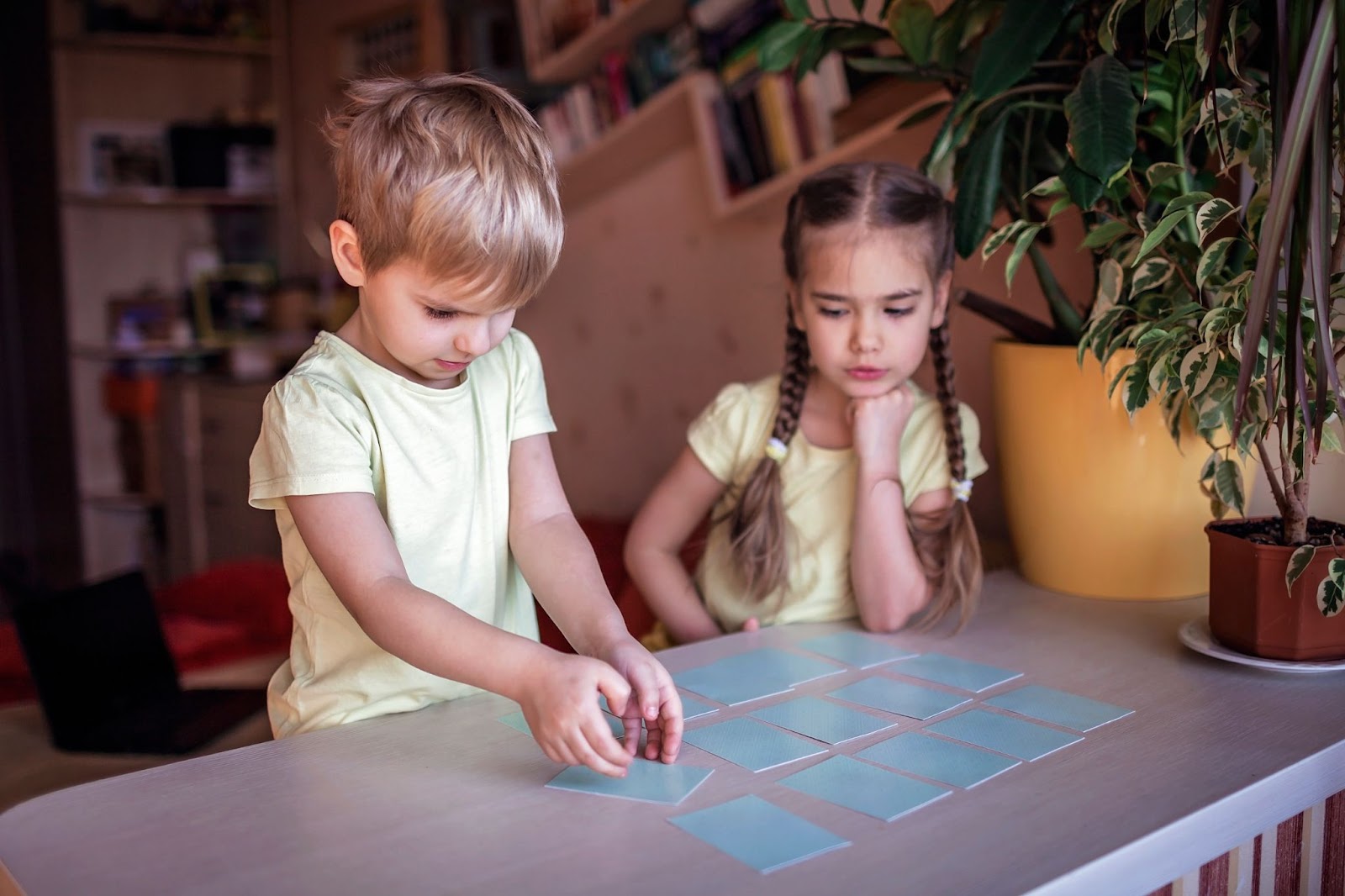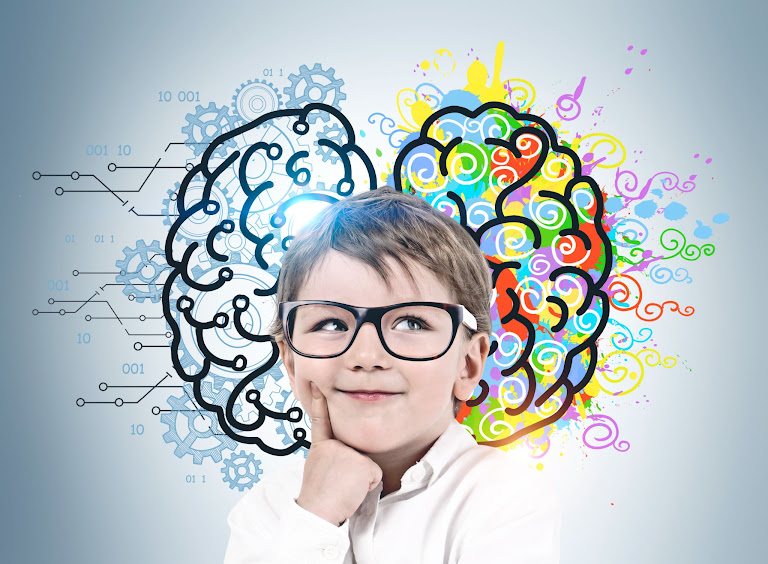- What is memory?
- How is memory developed in kids?
- Best vocabulary memory games for kids – TOP 15
We define general development in biological, neurological, psychosocial and cognitive areas. They are the processes that integrate and harmonize with one another and make us human.
Brain development is one of the most important processes that should be followed since birth. Memory, which is a cognitive development area, shows healthy development with the support of all the other previously mentioned areas.
Did you know that brain development, which is only 25% complete at birth, reaches around 90% in the first 6 years but still continues to progress till late twenties? That’s why it’s so significant to understand how to make the first 6 years of life the most efficient in terms of memory development.
In this article, we share expert opinions on the topic of cognitive skills’ development, in particular memory. Psychologist Gülizar Şehitoğlu provides a list of 15 games for memory development, which are fun and engaging. Find out ways for boosting memory in kids and learn how games help enhance cognitive skills.
What is memory?
If we are talking about a healthy development process, it is necessary to consider brain development with a holistic view, not separately from other developmental areas – says psychologist Gülizar Şehitoğlu.
But what exactly is memory? The term refers to the psychological processes of acquiring, storing, retaining, and later retrieving information. There are three major processes involved in memory: encoding, storage, and retrieval.
Human memory involves the ability to both preserve and recover information. However, this is not a flawless process. Sometimes people forget or misremember things. Other times, information is not properly encoded in memory in the first place.
That’s why it’s so important to enhance cognitive skills not only at an early age but also in adulthood. Training memory through games and activities can prevent brain aging and serious conditions such as Alzheimer’s disease and other kinds of dementia.
Types of memory
According to Richard Atkinson and Richard Shiffrin, in a theory initially proposed in 1968, three separate types of memory can be distinguished. They are: sensory memory, short-term memory, and long-term memory.
Sensory memory is the earliest stage of memory. During this stage, sensory information from the environment is stored for a very brief period of time, generally for no longer than half a second for visual information and three or four seconds for auditory information.
Short-term memory, also known as active memory, is the information we are currently aware of or thinking about. Paying attention to sensory memories generates information in short-term memory. Most of the information stored in active memory will be kept for approximately 20 to 30 seconds.
Long-term memory refers to the continuing storage of information. Long-term memory is largely outside of our awareness but can be called into working memory to be used when needed. Some memories are fairly easy to recall, while others are much more difficult to access.
Importance of memory in child development
Usually, when we say first memories, we think of our first experiential memories that we evoke through our memory. Gülizar Şehitoğlu claims that brain structures that make up memory begin to develop significantly after 4-5 years of age. According to data, 24% of experiences formed until the first 6-7 years of age are deleted, but the memory becomes stronger until the age of 10-12.
The part of the brain called the hippocampus is involved in learning and remembering. Since this part is not sufficiently developed at a young age, it is not possible to form a memory of every event. The fact that we remember some of our childhood memories clearly means that this situation is emotionally distinctive for us.
Even early life memories, which we remember as if they were ordinary memories, contain love, affection, and security that fulfills our basic needs, like a warm hug from your mother, or a weekend spent together.
Good memory skills developed from early childhood help kids retain and recall information, which is crucial for their academic success in the future. Memory also plays a key role in a child’s ability to perform tasks and make decisions, as well as in their social and emotional development. For example, a child with strong memory skills is more likely to remember important social cues, like the names of their friends, and recall positive experiences that contribute to their self-esteem.

How is memory developed in kids?
According to Gülizar Şehitoğlu, recent research reveals that babies learn certain things even in the womb. These established connections become more permanent in the child’s mind according to the environment and repetition. For example, it is not difficult to predict that language learning can be faster in the period of brain development, which is so fast before the age of 5-6.
However, one of the most critical elements in the learning process is repetition. The greater the exposure to information, the more permanent the learning. Information that is not repeated is forgotten, and this is an actual function of the mind.
Young children need enough repetitions to strengthen neuron connections. Because of them, that knowledge is permanent. Parents should see it as an opportunity, and the speed of synaptic connections in the first years of life should be turned into an advantage.
Gülizar Şehitoğlu suggests that creating an environment with appropriate stimuli to support cognitive and physical skills’ development in kids is essential. Thankfully, there are many fun, memory enhancing materials online or in real life.
How to improve memory?
To help children develop memory skills and remember significant events in life and new information they learn at school, see some tips from an expert. There are many great things parents can do to support healthy memory development in their kids, some of which are:
- To grow up in a healthy family environment, touch is vital for a baby. It is the most basic sense that can make babies feel that they exist. Growing in an environment where there is touch and contact, calling by name, making eye contact and hugging is very important for brain development.
- Avoid exposing babies to screens in the early stages, especially during the first 2 years of life.
- Being involved in life as much as possible and talking interactively. This is the most influential process that supports language and memory development. Give your baby a chance to try new experiences often. Your baby’s brain cells develop as they are exposed to new experiences. Adding new situations, toys, or movements to the games you play with your baby will speed up the bonding of these cells.
- Parents can incorporate reading into their kids’ lives from early infancy. Like audio and motion books, 3D books, for example. Flash cards with eye-catching visuals and sensory cards can be included in daily activities as well.
- Music is another influential resource you can interact with. Involving whole body movement while listening to a song, singing aloud together, makes it fun and beneficial for kids. Music’s contribution to learning cannot be overstated.
- Including daily activities that stimulate all the senses of children. For example, planning visual, auditory, sensory and kinetic activities. Memory development is valuable not only by directly supporting this area of development, but also by supporting other areas of development. It is important to look holistically.
- Let your kid feel the sun outside, experience nature together. Even when you’re in the house, look out the window together, talk and interact about the things outside. Show them life in motion. Kids will open their senses and their memory will work better.
Best vocabulary memory games for kids - TOP 15
Memory games are a fun way for kids to improve their memory development and boost their English vocabulary learning process. These games challenge kids to recall information, whether it’s images, words, or sounds, and strengthen their ability to retain and retrieve information.
By playing memory games, kids can practice and improve their short-term memory skills, which can have a positive impact on their overall memory and learning abilities. Additionally, by incorporating new English words into memory games, kids can simultaneously improve their vocabulary and language skills, making the learning process engaging and enjoyable.
Here are our top 15 recommendations for the best memory games for learning English vocabulary, as well as memory and concentration enhancement.
1. Puzzle games
They emphasize problem-solving skills, including logic, pattern recognition, sequence solving, spatial recognition, and word completion. These games challenge children to use their memory in different ways, so children can improve their working memory, long-term memory, and visual memory.
A few examples of puzzle games that can help develop memory skills in children are: jigsaw puzzles, which require children to remember the location of pieces and recall visual images; number-based Sudoku, that requires children to remember sequences and recall information, and maze games, which require children to remember the path they have taken and recall it to find their way out of the maze.
2. Matching game
It requires children to remember the location of objects or images on a game board, and to make connections between these items in order to find pairs. Through repeated play, children can improve their visual memory, short-term memory, and working memory, which are all critical skills for success in both personal and academic settings. Matching games come in many variants, including: matching cards with pictures, shapes or color matching.
3. Printables
Educational worksheets and activities can also be an effective way to develop memory skills in children. By engaging children in fun, hands-on activities, they can strengthen their memory abilities, increase their retention of information, and improve their cognitive skills. Some examples of printables to support memory development in children include: worksheets with matching pictures, letters, numbers, or shapes; or word searches and flashcards for memorizing new English vocabulary.
4. Online memory games
Nowadays, online games are something that kids love. Educational online games are convenient and engaging, and some of them can help develop children’s memory skills too. It’s a great opportunity to make the most of screen time. Online memory games can be played on a computer, tablet, or smartphone anywhere and anytime. You’ll find plenty online, but our favorite is Memory Train. When several numbers appear in front of you, you need to remember and press in the same sequence. For each successful chain of numbers, you get points. As you progress, the numbers that appear will have more complex strings.
5. 5 seconds game
This one is a favorite party and family game, for those who can act under time pressure. Rules are pretty straightforward. Players are asked a simple question and they have 5 seconds to come up with 3 answers before the buzzer rings. If the player doesn’t give all the answers before the time runs out, they don’t get points. You can easily play this game with younger kids, just adjust the answer time to 10 seconds.
6. Storytelling games
Some great storytelling games to support children’s memory development are: “Remember the Story”, where one person starts telling a story, and then stops at a certain point. The other players must then take turns continuing the story, trying to remember as many details as possible and “Picture Storytelling”, where children are shown a picture and must then create a story based on what they see.
7. Find the pairs memory game
The game involves flipping over cards and trying to find pairs of matching images or words. You can prepare such cards at home or for older children, who are studying English at school, you can play the game using new vocabulary on flashcards.
8. Pictionary
Pictionary is a classic drawing and guessing game that can help develop memory skills in children. The game requires players to draw picture cards that represent a word or phrase, and other players have to guess what the word or phrase is. Pictionary can develop memory skills in terms of word recognition, visual memory, observation skills and creative thinking.
9. Moving the cups game
Place three identical, plastic cups in a line on the table, rim down. Place a small object under one cup, allowing your child to see which cup the object is under. Shuffle the cups around by sliding them across the table, switching their positions quickly back and forth and all around. Once you have stopped moving the cups ask your child to identify which cup the object is now under.
10. Simon Says
Simon Says is a classic memory game that is popular among children and adults. The objective of the game is to follow the commands of “Simon”, who usually is the designated leader or the person who starts the game, while avoiding performing actions that are not preceded by “Simon says”.
11. Who Am I?
A memory game where kids have to recall the names of famous people or characters. It can be played with children of all ages. It’s a fun way to exercise memory skills and encourage critical thinking.
12. Spot the difference game
An easy and fun game, often in the form of a printable, where kids have to compare two images and remember the differences.
13. I Spy
It’s a game where one person describes an object and others have to guess what it is based on their memory. The game is designed to improve observation and memory skills and is a great way to pass the time on a long car trip or a boring afternoon.
14. Classic card games
Classic card games, such as Go Fish and Old Maid are simple, easy to learn, and can be played with a standard deck of playing cards.
The Go Fish game involves asking other players for specific cards in order to make a set. It requires children to remember what cards they already have and what cards they need, improving working memory skills.
The Old Maid game involves trying to avoid being left with the Old Maid card. Kids need to remember which cards have been played and to make decisions based on that information, improving working memory skills and strategic thinking.
15. Crossword puzzles
By completing crossword puzzles, children can improve their recall of important information, such as English vocabulary, historical dates, and geographical locations. It’s a great pastime for vacation, both for kids and adults.
Did you find this article useful?
What are your thoughts on working on memory skills in children from an early age? Let us know in the comments section below. Did you like our brain boosting memory games for kids? Each of the games can be played at home or outdoors during vacation or short trips, so don’t hesitate and help improve your kids’ memory starting today!









































